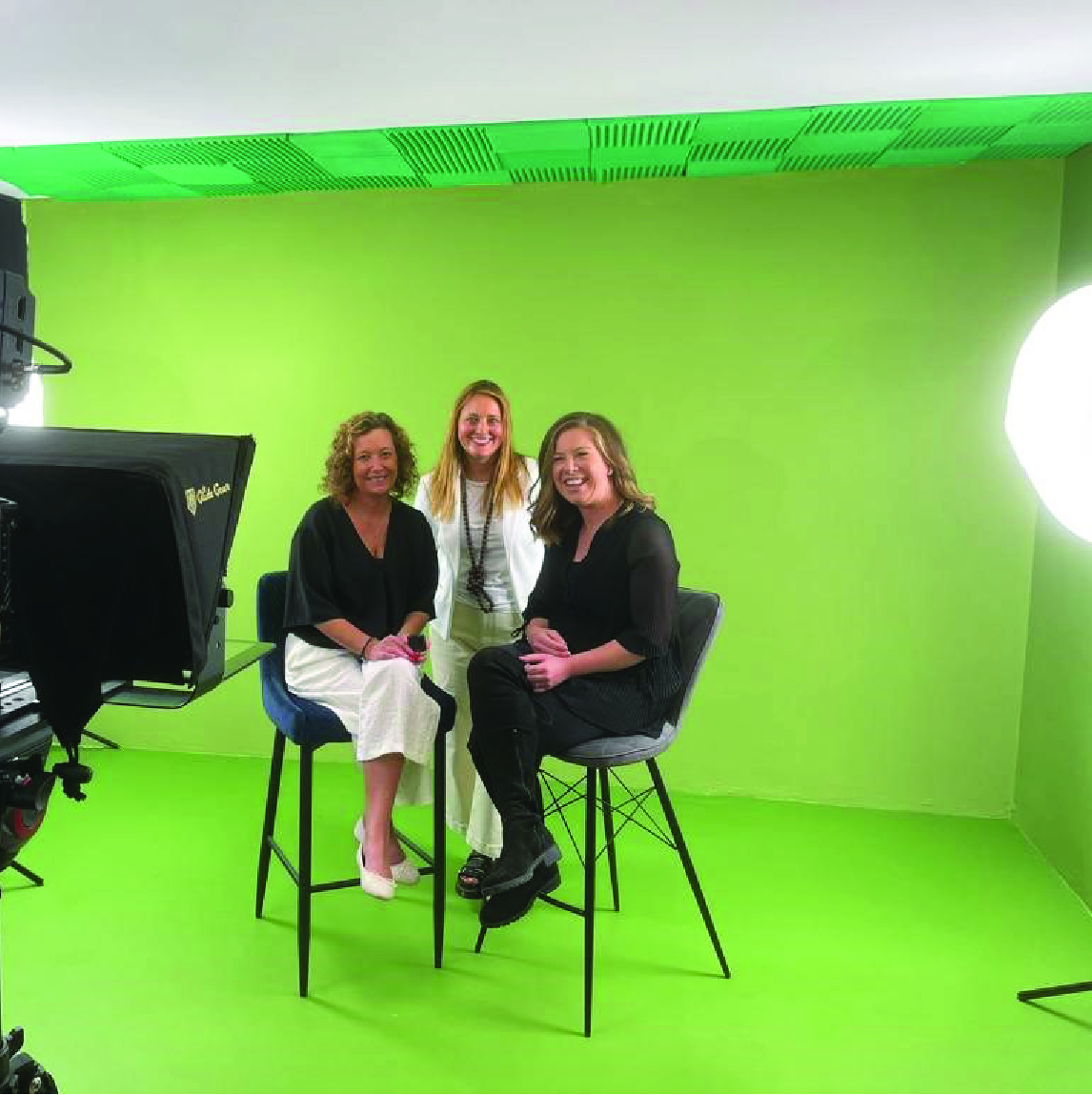-
Study
-
Quick Links
- Course Search
- Unlock Your Potential
- Still time to Apply
- Higher and Degree Apprenticeships
- Continuing Professional Development
- Still time to apply
-
Undergraduate
- Course Search
- Application Guides
- UCAS Exhibitions
- Foundation Years
- Fees and Funding
- School & College Outreach
- Information for Parents
-
Postgraduate
- Course Search
- Application Guide
- Postgraduate Research Degrees
- Flexible Learning
- Fees and Funding
- Change Direction
- Register your Interest
-
Student Life
- Students' Union
- The Hub - Student Blog
- Accommodation
- Northumbria Sport
- Support for Students
-
Experience Northumbria
- Open Days & Events
- Virtual Tours
- Campus Tours
- Life in Newcastle
-
-
International
International
Northumbria’s global footprint touches every continent across the world, through our global partnerships across 17 institutions in 10 countries, to our 277,000 strong alumni community and 150 recruitment partners – we prepare our students for the challenges of tomorrow. Discover more about how to join Northumbria’s global family or our partnerships.
View our Global Footprint-
Quick Links
- Course Search
- Undergraduate Study
- Postgraduate Study
- Information for Parents
- London Campus
- Northumbria Pathway
- Sign up for Information
-
International Students
- Information for Students
- International Events
- Application Guide
- Entry Requirements and Education Country Agents
- Global Offices
- English Requirements
- English Language Centre
- International student support
-
International Fees and Funding
- International Undergraduate Fees
- International Undergraduate Funding
- International Masters Fees
- International Masters Funding
- International Postgraduate Research Fees
- International Postgraduate Research Funding
-
International Partners
- Agent and Representative Network
- Global Partnerships
- Global Community
-
International Mobility
- Information for Northumbria Students
- Information for Incoming Exchange Students
-
-
Business
Business
The world is changing faster than ever before. The future is there to be won by organisations who find ways to turn today's possibilities into tomorrows competitive edge. In a connected world, collaboration can be the key to success.
More on our Business Services -
Research
Research
Northumbria is a research-rich, business-focused, professional university with a global reputation for academic quality. We conduct ground-breaking research that is responsive to the science & technology, health & well being, economic and social and arts & cultural needs for the communities
Discover more about our Research -
About Us
-
About Northumbria
- Our Strategy
- Our Staff
- Place and Partnerships
- Leadership & Governance
- Academic Departments
- University Services
- History of Northumbria
- Contact us
- Online Shop
-
-
Alumni
Alumni
Northumbria University is renowned for the calibre of its business-ready graduates. Our alumni network has over 246,000 graduates based in 178 countries worldwide in a range of sectors, our alumni are making a real impact on the world.
Our Alumni - Work For Us
What will I learn on this module?
The module will introduce you to some of the key concepts and approaches in the English language teaching field. Through a combination of tutor-led input, discussion and reflection upon your own learning experiences, you will develop an understanding of what ‘good learning and teaching’ might be and how teaching may vary with learners of varying levels of English. You will learn about the different factors, internal and external, that influence language teaching and learning in the classroom. ‘Internal factors’ include individual differences such as age, aptitude, learner motivation, anxiety, and learning strategies; factors which are ‘external’ to the learner include the teacher, syllabus, teaching methodology, coursebook and so forth.
Over the course of the module, you will therefore explore the complexity inherent in an ELT classroom
How will I learn on this module?
The module will be delivered through a combination of interactive lectures and seminars. Key themes and concepts will be introduced in lectures, supported by seminars that allow further group working, discussion and debate. All topics and debates within the module will be supported by reference to relevant literature, which you will read outside of class to further develop your knowledge and understanding of the field.
In addition to learning during taught hours with the module tutor, you will be expected to undertake both directed and independent learning. Directed learning generally will take the form of preparation for seminars where you will be expected to contribute to group work and full class discussion. Independent learning generally will take the form of further reading and investigation, the consolidation of seminar notes, and revision/preparation for the assessment of the module.
All learning materials, tasks and readings will be posted on the eLP (e-learning portal) to facilitate full participation in the module. Additionally, you will receive formative feedback on your ideas and understandings throughout the module. The module’s final, summative assessment will also provide an opportunity for learning.
How will I be supported academically on this module?
The module aims to enhance your ability to reflect on your own learning experiences and to raise your awareness of a range of key concepts and issues in the theory and practice of TESOL. Thus, lectures, seminars and tasks will develop your academic knowledge and skills, to help you attain the module learning outcomes. Your academic development will also be facilitated through engagement with the academic literature and by talking with your peers and the module tutor about your understanding of this literature (i.e. reading around the topic, and discussing and reflecting upon what you have read).
The module handbook provides details of lectures, seminars, reading lists and assessment criteria; lecture materials are made available on the eLP (see above). The module tutor will be available in lectures and seminars, as well as in ‘Feedback and consultation hours’ (i.e. ‘office hours’) and on email, to discuss any queries or concerns you have about how to excel academically on the module. Formative feedback will be on-going throughout seminar/workshop activities. Formative feedback will also be provided on your reflective essay and critique plans, prior to completion of the module’s formative assessments.
In addition, you have a designated Guidance Tutor throughout the entire duration of your programme. The academic side of the Guidance Tutor’s role includes: monitoring your ongoing academic progress; helping you to develop self-reflection skills necessary for continuous academic development; directing you to further available services which can help them with their academic skills (e.g. Library’s Skills Plus). You are advised to see your Guidance Tutor at least twice each semester to review your academic progress..
What will I be expected to read on this module?
All modules at Northumbria include a range of reading materials that students are expected to engage with. Online reading lists (provided after enrolment) give you access to your reading material for your modules. The Library works in partnership with your module tutors to ensure you have access to the material that you need.
What will I be expected to achieve?
Knowledge & Understanding:
1. Understand and be able to apply the key concepts and approaches necessary for the study of English language teaching to speakers of other languages.
Intellectual / Professional skills & abilities:
2. Reflect upon and present in speech and writing your ideas about TESOL related concepts linking this to your own learning experiences and the pedagogical approaches.
3. Establish and justify your own position within complex debates and arguments
Personal Values Attributes (Global / Cultural awareness, Ethics, Curiosity) (PVA):
4. Demonstrate the ability to work independently as well as collaboratively with others to develop subject-specific knowledge, time management skills and research skills.
5. Develop your critical thinking and reflective skills
How will I be assessed?
Formative assessment
You will present your ideas during seminars and will receive formative feedback from the module tutor and peers on any perspectives you share. Such formative will enable you to test and form your own understanding of a range of concepts in relation to the TESOL classroom.
Summative (graded) Assessments
1. 1,500-word reflective essay (Semester one)
You will write a reflective essay in which you focus on 2 or 3 key issues that we have discussed this semester, examining how they might affect teaching and learning (or teachers and learners) in the language classroom. (If applicable, you may wish to refer to your own language learning experience).
You will be expected to demonstrate a clear engagement with the larger debates on language-learning, classroom management, different methodologies, and impacts of culture on language-teaching. The aim here is to ensure you get to grips with theoretical positions and concepts, while reflecting on your own learning experience.
2. You will write a 1,200-word mini-ethnographic study, based on observation of a lesson. You will be expected to show an understanding of pedagogical principles concerning language-learning and classroom management as covered in Semester 1, discussing how these principles are operationalised in practice in the language classroom. This will be weighted at 75%.
You will also answer an in-class exam, consisting of ways of checking learners’ understanding of meaning (grammar / lexis) and of pronunciation, demonstrating proficiency with the International Phonetic Alphabet. This will be weighted at 25%.
The assessments will be part of the learning process, and address all five MLOS. Feedback will be provided using the Programme template and comments on the script.
Pre-requisite(s)
N/A
Co-requisite(s)
N/A
Module abstract
This year-long module provides some of the skills needed to become an effective language-teacher. In Semester 1, the course explores ways to motivate both children and adults in language-learning, touching on the many teacher-roles available in the classroom: nurturer, organiser, friend, monitor, language-expert. For the role of organiser, you will learn what makes classroom-talk different from other interactions, and how to set clear and comprehensible tasks to language-learners. In semester 2 you will have the opportunity to visit a real classroom, to see how authentic teachers balance these skills and roles in their own work. You will also have a deeper dive specifically into the role of language-expert, learning how to explain meaning (of words and tenses) in a rigorous but stimulating way. On completion of the module, you will hopefully have the curiosity towards the language and the confidence needed for the second year of your BA English language journey, in which you will actually take on the role of the language teacher yourself. Overall, the course provides a solid foundation for anyone keen to travel overseas to work as an English language teacher, or for students interested in careers in primary education in the UK.
Course info
UCAS Code Q310
Credits 20
Level of Study Undergraduate
Mode of Study 3 years Full Time or 4 years with a placement (sandwich)/study abroad
Department Humanities
Location City Campus, Northumbria University
City Newcastle
Start September 2025 or September 2026
All information is accurate at the time of sharing.
Full time Courses are primarily delivered via on-campus face to face learning but could include elements of online learning. Most courses run as planned and as promoted on our website and via our marketing materials, but if there are any substantial changes (as determined by the Competition and Markets Authority) to a course or there is the potential that course may be withdrawn, we will notify all affected applicants as soon as possible with advice and guidance regarding their options. It is also important to be aware that optional modules listed on course pages may be subject to change depending on uptake numbers each year.
Contact time is subject to increase or decrease in line with possible restrictions imposed by the government or the University in the interest of maintaining the health and safety and wellbeing of students, staff, and visitors if this is deemed necessary in future.
Useful Links
Find out about our distinctive approach at
www.northumbria.ac.uk/exp
Admissions Terms and Conditions
northumbria.ac.uk/terms
Fees and Funding
northumbria.ac.uk/fees
Admissions Policy
northumbria.ac.uk/adpolicy
Admissions Complaints Policy
northumbria.ac.uk/complaints













